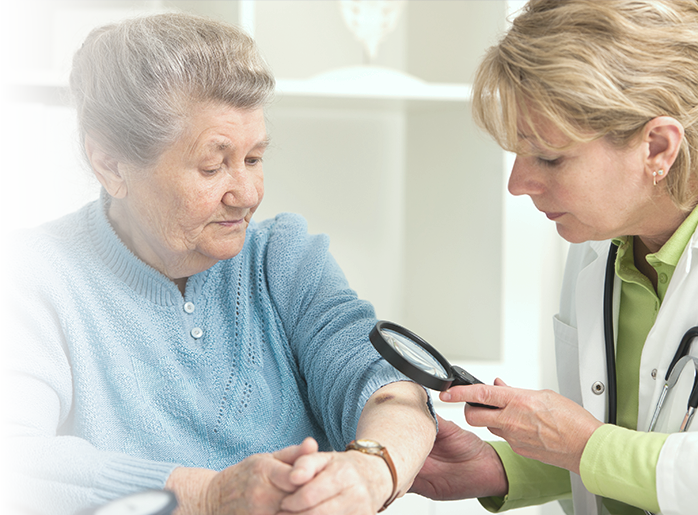Eczema
Know More: Eczema
Trustworthy information, straight from the source. Education is the first step in an empowering healthcare plan. Learn more about eczema, from prevention to diagnosis and treatment.

Condition Overview
What is eczema?
Eczema, or atopic dermatitis, is an itchy, red skin rash. You are more likely to have it if your parent or a family member has eczema, asthma, or hay fever. It is a long-term condition that may cause flare-ups for the rest of your life.
Risk Prevention
What triggers eczema?
Anything that increases dryness or makes you want to scratch is a trigger. Triggers may cause eczema to flare up. The following are common triggers:
- Frequent baths or showers can lead to dry, itchy skin.
- Sudden temperature changes, such as cold air, dries your skin. Heat can increase sweating. Both can make you itch.
- Allergens such as dust mites and pet dander can make your symptoms worse. Pollen, mold, and cigarette smoke may also irritate your skin.
- Some kinds of soap, makeup, and household cleaners may bother your skin. Ask your healthcare provider what mild products you can use.
- Stress may cause your eczema to get worse.
Diagnosis and Treatment Options
How is eczema diagnosed?
Tell your healthcare provider if you know what triggers your rash. Your healthcare provider will want to know if anyone in your family has allergies, asthma, or eczema. There are no tests to diagnose eczema. Your healthcare provider may test you for allergies to find out if they trigger your eczema.
How is eczema treated?
There is no cure for eczema. The goal of treatment is to reduce pain and itching and add moisture to your skin. Your symptoms should improve after three weeks of treatment.
You may need the following:
- Medicines, such as immunosuppressants, to help reduce itching, redness, pain, and swelling. They may be given as a cream or pill. You may also receive antihistamines to reduce itching, or antibiotics if you have a skin infection.
- Phototherapy, or ultraviolet light, may help heal your skin. It is also called light therapy.
Preparing for Care
When should I seek immediate care?
- You develop a fever or have red streaks going up your arm or leg.
- Your rash gets more swollen, red, or hot.
When should I contact my healthcare provider?
- Most of your skin is red, swollen, painful, and covered with scales.
- You develop bloody, red, painful crusts.
- Your skin blisters and oozes white or yellow pus.
- You have questions about your condition or care.
